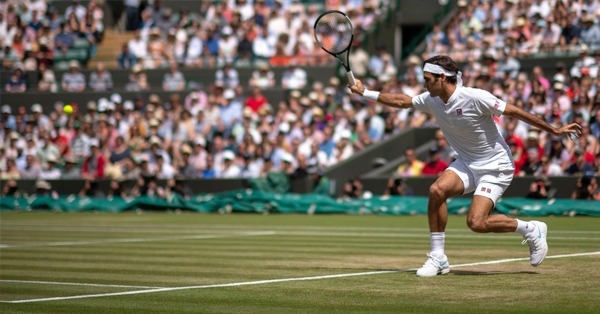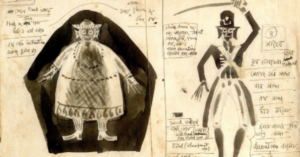If GOAT stood for Gracefullest Of All Time, the argument would not have begun. Perhaps Rafael Nadal and Novak Djokovic would’ve been the first two to congratulate the silken Swiss.
For at least two generations of tennis fans, Federer has been a treat as sweet as a Nestle chocolate bar, as precise as an Omega watch and as cool and unflappable as the Alps, where his hometown Basel is. It has been said that there are as many reasons to love Roger Federer as there are lakes in Switzerland. What is the Federer phenomenon? Why do his fans love him so fiercely? And finally, is he really that nice? ‘Federer <3 Fans’ needs to be decoded.
Love at first sight
In 2001, a boy with a scruffy chin defeated the then greatest player on grass Pete Sampras. Federer was only 19 years old at the time. I saw that match live and remember some of the rallies and one particularly unbelievable return of Sampras’ second serve in the last game of the match. There was something special in his play, as well as his reaction at the end. A baton had been passed, and the world was ready for a new era in tennis. Federer clearly was a player who could control the court and make his opponents sweat for their points. His longevity was not yet known as he sobbed away in stark contrast to a gutted but stoic Sampras. That brings us to point two and three.
Real Men Cry
The Federer Era coincides with the emergence of the millennial male who owns his emotions and is willing to show them to the world. It is safe to assume that Federer must have cried in five of his ten Grand Slam losses and in 18 of his 20 Grand Slam wins. Why does he cry? Theories abound. Is he simply overcome by exhaustion, is it the sight of his family in his spectator box, the presence of a former great (Rod Laver, Bjorn Borg, Chris Evert – he is not choosy), or could it be just the sight of his racquet? Anything can set off the tears, giving FedEx an endearing ‘aww’ factor.
The long-playing vinyl
Sourav Ganguly was the captain of the Indian cricket team when Federer won his first Wimbledon final in 2003. Ganguly had played some more, retired and became BCCI president when Federer made the final at Wimbledon in 2019. Equally, Donald Trump was debuting on television with The Apprentice in 2004, when Federer won his first Australian Open. After destiny’s impossible zigs and zags, Trump was President when Federer won his sixth title at Melbourne in 2018. The world has turned, churned and upturned several times over, but Federer remains that one decent, reassuring and inspiring constant. For some of us, he makes middle age feel young, for others he is a symbol of how class is permanent. Youngsters who have no recollection of his first Grand Slam win are now his firm fans, living and dying by his impossible winners and exasperating unforced errors.
A great champion needs a great rival
Federer has a great rival, one who has matched him at every step for the better part of his career. Rafael Nadal has been Darth Vader to Federer’s Luke Skywalker, Vilayat to Federer’s Ravi Shankar. However much you back one of them (Nadal has legions of adoring fans!) you know the other one is a likeable guy and a champion for the ages. The rivalry has kept millions glued to and invested in the sport, ensuring that each tournament they turn up at is a blockbuster. Today, their encounters have a chess-like quality, with both players so familiar with the other’s game that you can sense them anticipating each other’s moves.
Family man
Andre Agassi once said that tennis is the loneliest sport. Even your rival is almost 25 metres away, across a net. Federer seems to be aware of this aloneness, but more than compensates for it off court. He travels with both parents, wife and four children to most games and is known to be a family man. He has a vibe of someone possessing old-school family values while being equally at ease with those who see life differently.
One might argue that Federer could have taken firmer stands on social issues, but as an ambassador of sport he has been involved in charities across Africa and as a young man, even threw his weight behind relief work during the 2004 tsunami.
A poll was held worldwide to ascertain which public figure inspired the most respect and possessed the most credibility. The year was 2011, and the name at the top, Nelson Mandela, was a foregone conclusion. Who could be greater than Madiba, father to a nation, minstrel of peace and the figure who helped South Africa reconcile to the idea of a multiracial future? Interestingly, Federer was the second person on that list, reflective of how inspirational his persona was to fans worldwide. Today, the Swiss champion might just top a credibility and respect poll. The lessons his story and achievements carry are simple: Nice guys do not need to finish last, true triumph is in being graceful in victory, and very often the number of trophies does not matter as much as the moments of joy you provide while playing.





